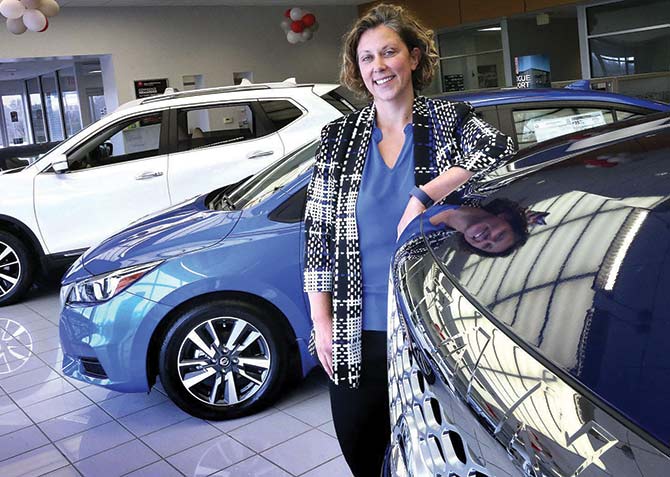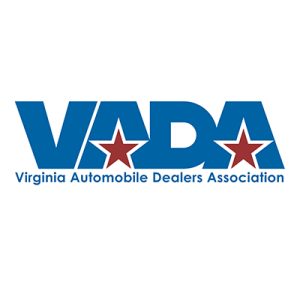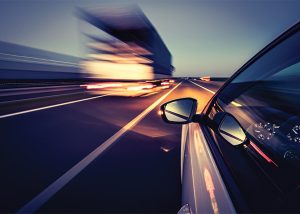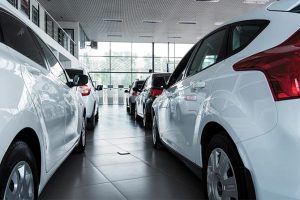VADA Chairwoman and third-generation owner of Marlow Auto Group
Emily Beck’s legal career put her on the road back to running the northern Virginia dealership her family started decades ago.
Beck, a former partner and vice-chair of the dealership practice at the Hudson Cook, LLP law firm, is chairwoman of VADA and the third-generation owner of Marlow Auto Group, the business her grandfather, Guy Marlow, started in 1947 as a Kaiser-Frazer dealership.
The business grew under Beck’s father, John Marlow, and now operates three stores: a Chrysler, Jeep, Dodge, Ram store in Front Royal, Va., Tri-State Nissan in Winchester, Va. and Marlow Ford in Luray, Va.
She wasn’t planning to get into the dealership business after graduating from the University of Virginia. Instead, Beck went to Washington, D.C. and studied international corporate law at American University. She got an offer from a D.C.-area law firm, but amid an economic downturn, the position was cut before she even started.
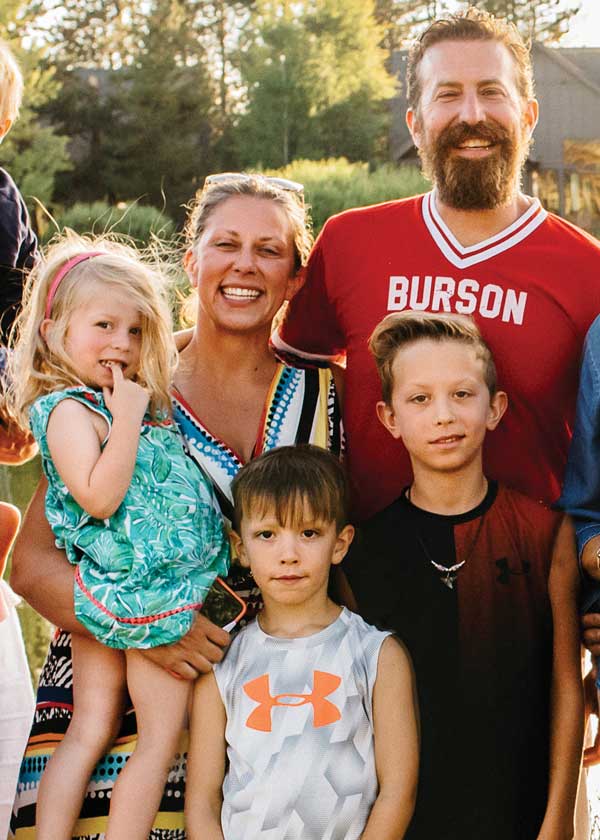
She eventually landed a job at Hudson Cook, LLP, a law firm specializing in consumer credit compliance. VADA President and CEO Don Hall notes that experience has made Beck an expert on many of the legal issues dealers face.
“Emily grew up around the business her whole life,” Hall says. “She is a woman full of integrity. She’s less about her. She’s more about the greater good.”
Beck and her husband, Andrew, live in Winchester with three children: Olin, Marshall, and Margaret. Let’s hear from Emily about her background and where our industry is headed.
How did you get into the car selling business?
After the first law firm I applied to rescinded its job offer, I took a job at a really small law firm. It paid the bills, but the whole time I was thinking, ‘What do I know that no one else knows?’ I knew the car business because I grew up in it. I called the NADA, and they gave me a couple of names of law firms specializing in the auto business. My husband said, ‘Don’t just call human resources. Find the guy you want to work for. Call him directly and ask to meet him to learn about what he does.’ I called Tom Hudson at Hudson Cook who told me they weren’t hiring but to send a resume.
I did, and he said they made an executive decision that they were hiring and to come in for an interview. That’s how I got hired at Hudson Cook. The firm had a large auto finance compliance practice, which allowed me to work with dealers and finance companies all over the country. That was a great experience doing public speaking, traveling, writing, and consulting.
If there was a retail part of law, I was in it. I loved it and worked with great people who were like family. But eventually, it got to the point where I had my first son, and my dad was getting older. I was spending all this time in other people’s stores. I kept thinking: Why am I not doing this for my own store? I returned home to work with our family dealerships 11 years ago.
Where did you first start at Marlow Motors?
The plan was for me to work in all departments. But within a very short period of time of my coming home, my dad had an emergency quintuple bypass surgery and was out of the store. Ready or not, I was in charge. There was baptism by fire and no time to get reacclimated.
What was it like for your dealership during the pandemic?
It has been the absolute best of times and the worst of times, sometimes on the same day. I have never been more proud of my team. I have also never been more scared for my team. If anyone has any doubt about the resiliency of the American car dealer, they don’t understand what happened [during the pandemic].
The word “grit” comes to mind. We did whatever it took to take care of our team and our community.
What did the dealerships in the Marlow Auto Group do that they weren’t doing before COVID-19? Did you ramp up your digital operation? Did you do sales and service visits to customers’ homes?
We had the blueprint in place for a lot of these things before COVID happened. But then COVID required us to really lean into these things in a way we hadn’t before. We pride ourselves as being innovative problem solvers. I’m a working mom. My biggest pet peeve is: don’t waste my time. If you make me take off work to come here and service my car, I’m going somewhere else. So we had always asked ourselves, “How do we use innovation to save our customers time?” That was part of our DNA already. And then suddenly that shifted to, “How do we use innovation to keep our customers safe?”
We had already put in place extended service hours from 6 a.m. to 10 p.m. some time ago. Social distancing is naturally baked into early and late hours. We leaned into our digital retailing tools to sell cars online and deliver them to customers’ homes or reduce the amount of time at the dealership or bodies in the building. We always thought of these tools as a way to take care of working families and save people time. We didn’t think of them as a way to keep people safe. The tools were there, but they just became more meaningful with COVID.
What is the value of the VADA? What is your vision for not only the association but the industry in Virginia and beyond?
VADA was essential in keeping us informed and being our experts. Most dealers don’t have legal counsel on staff. VADA does a lot of lobbying, and they do a great job. I also felt like they were our coaches saying, “This is how you navigate these choppy waters.”
Perhaps even more importantly, VADA did a magical job telling our story to people who were making the decisions to make sure we had a seat at the table. Not only do dealers benefit from it, but so do the customers and the community. Imagine if we were shut down, what would that have meant for people who rely on us for their transportation needs?
Where do you see this association and the industry heading?
VADA is going to play an amazing role in continuing to tell our story because I think a lot of people — lawmakers and customers — make decisions based off of stale information about our industry.
They think buying a car today is like the last time they did it (about 11 years ago, on average). They don’t understand how different and evolved we are, nor do they understand the regulations we face. As the industry changes and consumer demands change, there are a lot of misconceptions about our business that VADA is going to have to combat.
What’s it going to take to get more women or people of color into leadership positions (besides having a dealership in the family)?
We need more mentors and role models.
I had amazing male mentors growing up in the law firm and with my dad. But I didn’t have any female mentors in the auto industry. I used to think I handled things so differently than the men in the room. And at times, because no one in the room looked or acted like me, I thought that I was doing something wrong. It took me a while to realize that the things I was doing differently actually were my competitive advantage. I deal with that in hiring women. They think about what they don’t know instead of thinking about what they bring to the table. I always tell them, “We can teach you all of that. I want you here because of all the other stuff we can’t teach you: Your life experience.”
I think it’s happening, but I don’t think it’s happening quickly enough. I think part of that is just by getting the message out and letting people see that we don’t look the same that we did 10 years ago.



